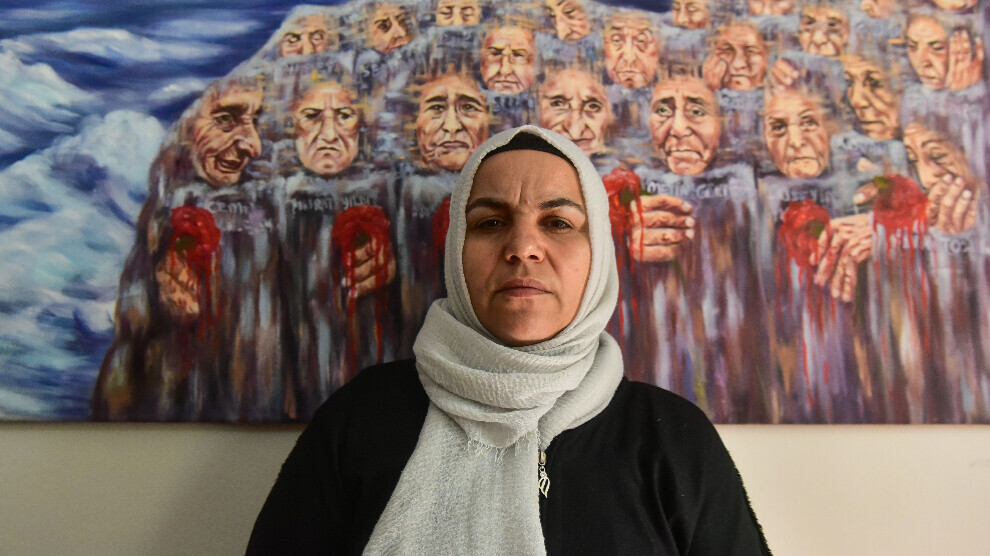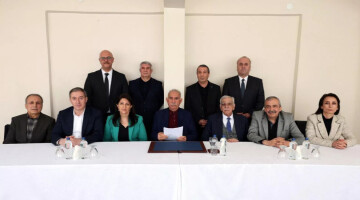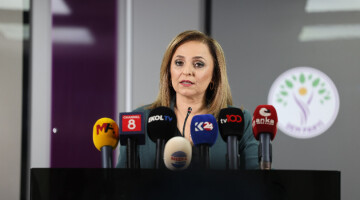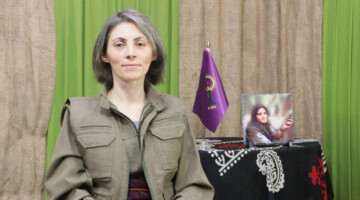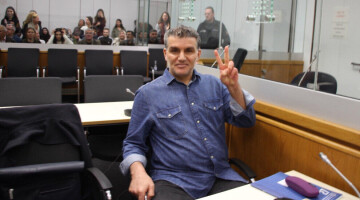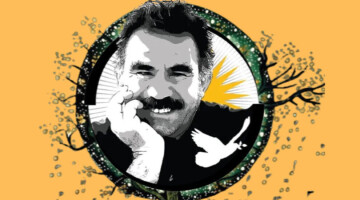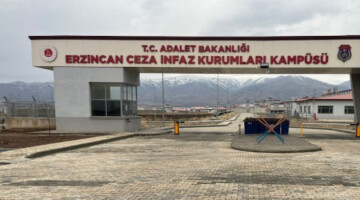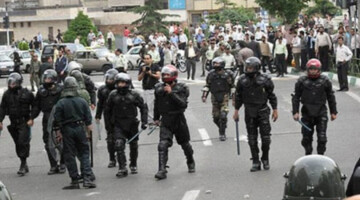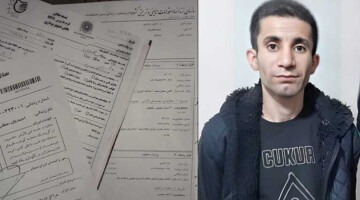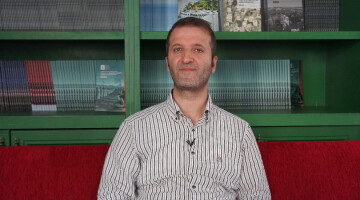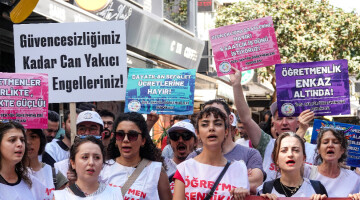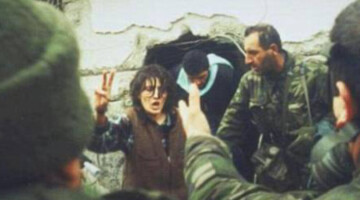In the run-up to the parliamentary elections on May 14, Hüda-Par (Free Cause Party, the political wing of Kurdish Hezbollah) was included in the People's Alliance, of the ruling AKP and its partner MHP, and thus granted seats in the parliament after the ruling bloc won the majority of the votes.
Hüda-Par played a role in tens of thousands of unsolved murders in the 1990s with its contra activities.
Many people were executed extrajudicially and disappeared in the Kurdish province of Batman, which Hezbollah used as a stronghold in its special war strategy in the 1990s. The aftermath of the countless victims remains unknown and their cases unsolved.
Feryal Çelik has been fighting for years to reveal the fate of her father, İbrahim, and her son, Edip, both of whom were victims of atrocities by Hezbollah. She spoke to ANF about what she has been through and the injustice she has been fighting.
Mourning for 29 years
Feryal Çelik cannot forget the date of July 10, 1994, when Çelik witnessed his father and brother taken away by people who pretended to ask them to show an address. She has been in mourning since that day, bursting into tears while describing that night.
Çelik lived with her family in Batman’s Soğuksu hamlet at the time. She says that her father, İbrahim, was engaged in farming and his brother was a construction worker in Antalya. Çelik notes that their village was under state pressure at the time. She states: “My brother Edip came to the village from Antalya. It was the night of July 10, 1994. We were at home. Someone knocked on the door, and when I opened it, I saw 4-5 masked and armed persons. They asked my father to take them to the house of a villager. My mother told my father not to go. My father replied that he would take them to the place and come back. My brother was at my uncle’s house. When he came back home, he asked about my father. He immediately went outside when my mother told him that masked men had taken him away to show them an address. Despite my mother's warning, he went after them. His last words were 'I can't leave my father'. That was the last time we saw my father and brother. We have never heard from them since.”
Killed by hogtie
Çelik later found out that some other people had also been taken away from other surrounding villages on the same night. When they went to report about the disappearance of her father and brother, the police and gendarmerie made fun of the family, saying, "Why do you come here to ask about your disappeared relatives? Go and ask somewhere else."
Pointing out that the pressure of Hezbollah on the villages increased after this incident, Çelik says: “Hezbollah ran rampant in the village. They were leaving notes on the doors of the houses saying, ‘This person will die.’ They attacked one of the villagers with guns. They forced him to migrate after repeated threats. They kidnapped and killed a distant relative of ours, Sabri Şeker, who was trying to prevent people from migrating. The address that the masked people asked that night was the house of Sabri Şeker's brother. Şeker's body was found a few days after he had been kidnapped. He was hogtied and killed with a nylon bag put on his head.”
'Criminal complaint remained inconclusive’
Çelik notes that her mother was a kidney patient at the time, and every door was shut in their face. “We filed a criminal complaint with the prosecutor’s office against Hezbollah members named Talat Rüzgâr, Aziz Önlük, İlhan Önlük, Resul Güneş and Çetin Dursun, but both the complaint and our efforts remained inconclusive. We have never heard from İbrahim and Edip Çelik again.”
‘No justice in this country’
Çelik joined the justice vigil of Saturday Mothers after migrating to Istanbul. She has been searching for the bones of her brother and father for 29 years. Çelik draws attention to the fact that Saturday Mothers are denied access to their ancestral rally site in front of the Galatasaray High School in Istanbul, while HÜDA PAR enters the parliament. “They do not only deny us the bodies of our beloved ones, but also access to Galatasaray Square where we gather every week to ask about the fate of our disappeared relatives. On the other hand, they grant HÜDA PAR seats in the parliament and award it. There is no such thing as human dignity in this country. We are detained, but they can enter the parliament. Although we are right, we are persecuted, but they win seats in the parliament. There is no justice in this country.”

